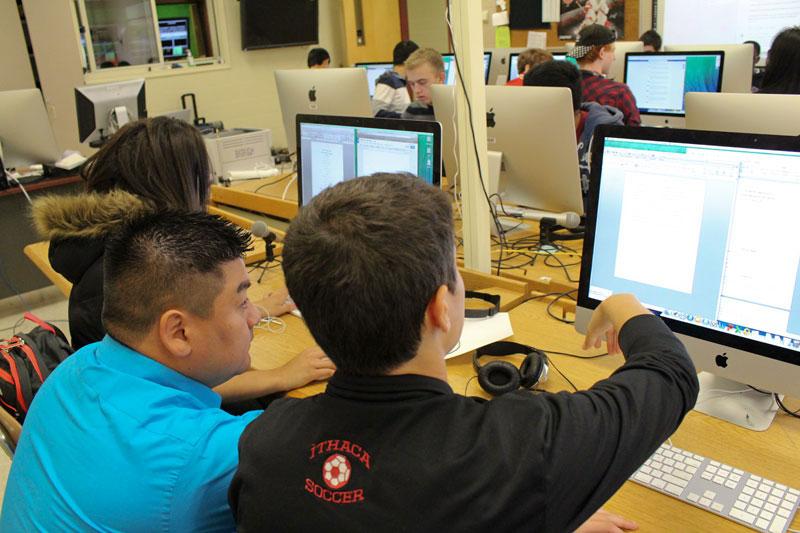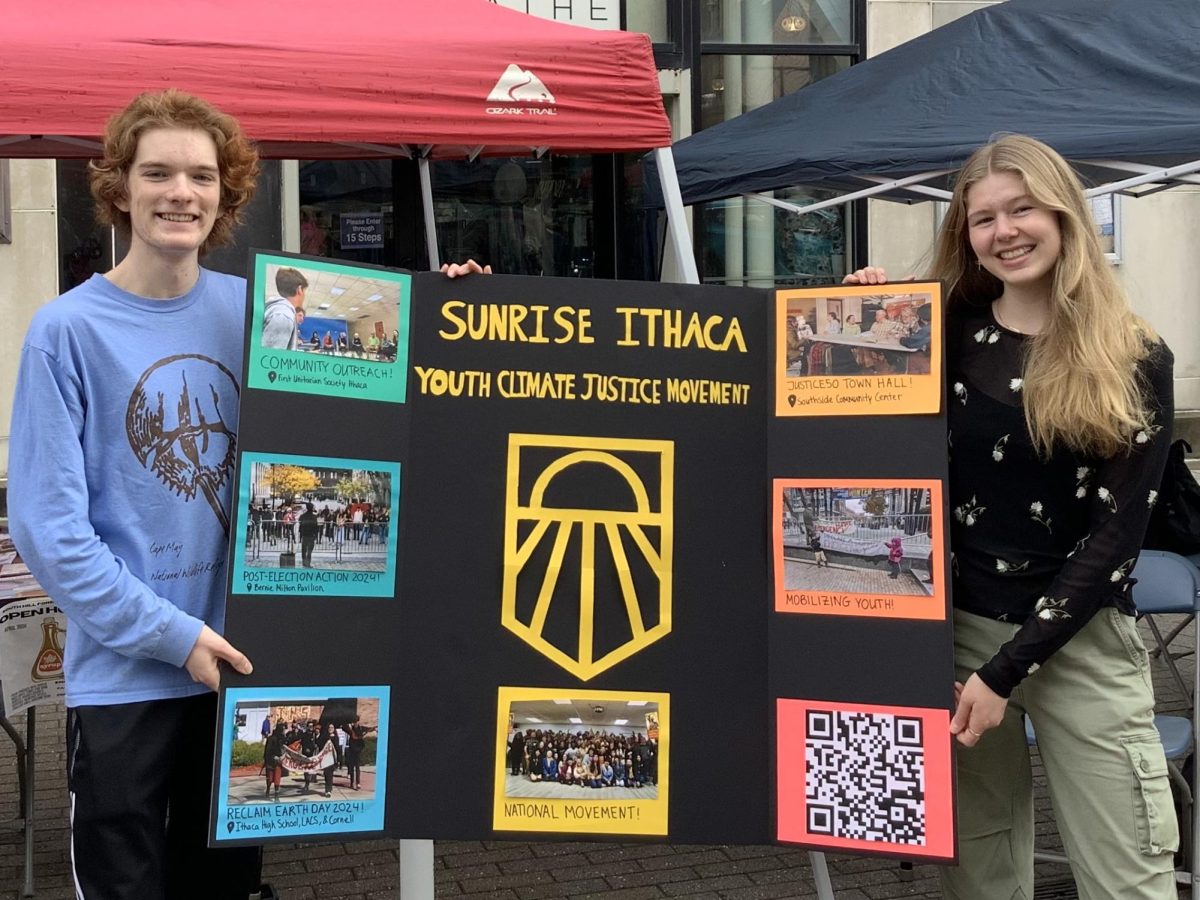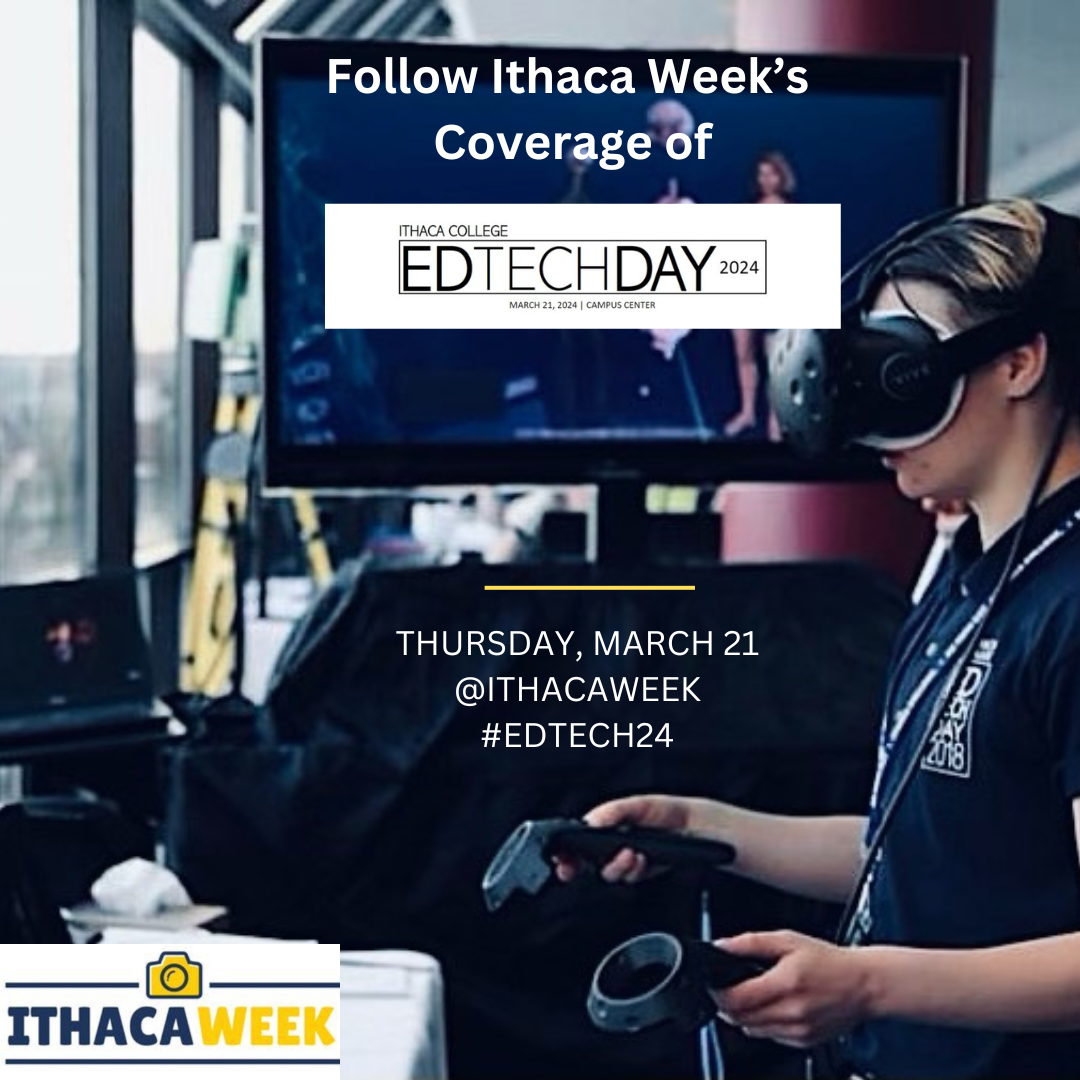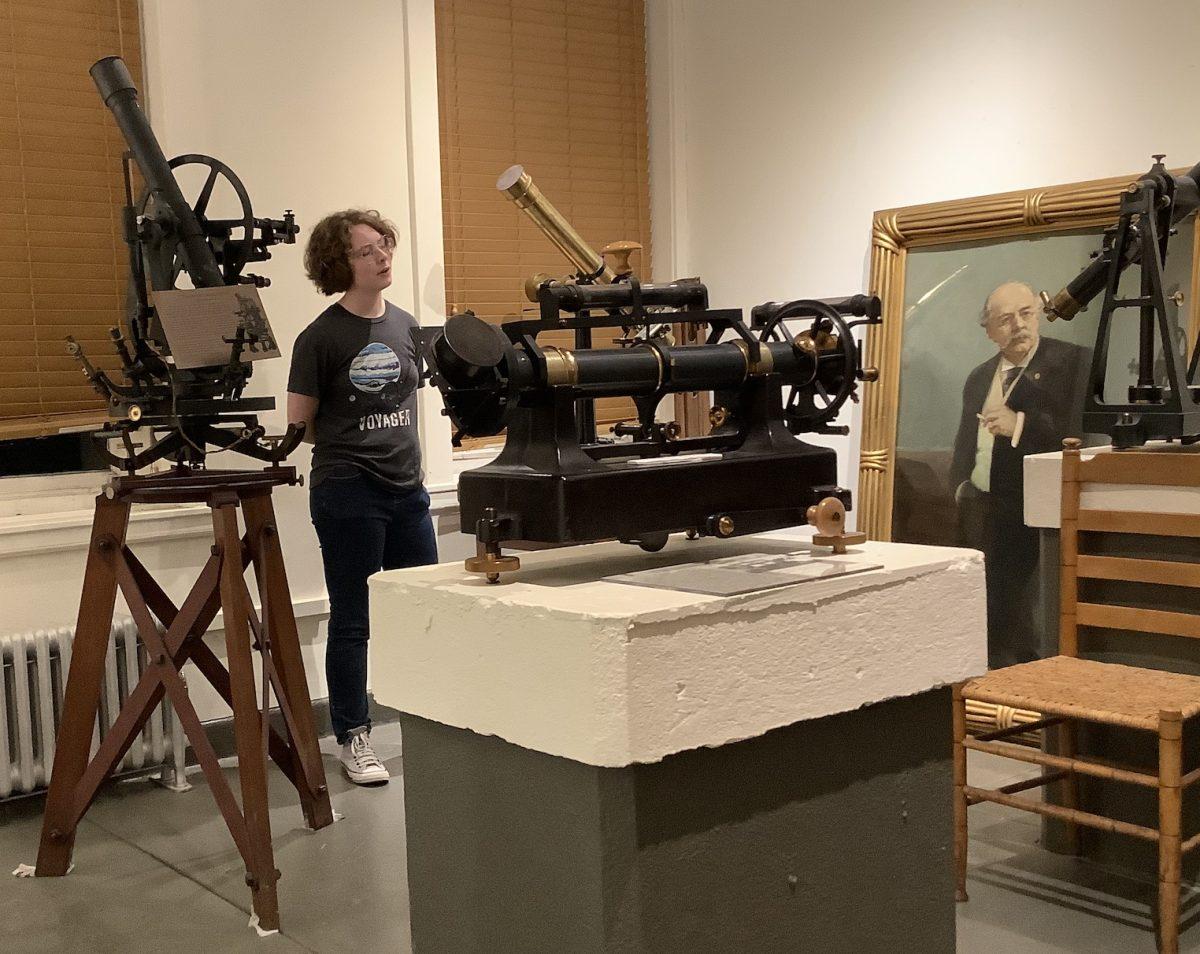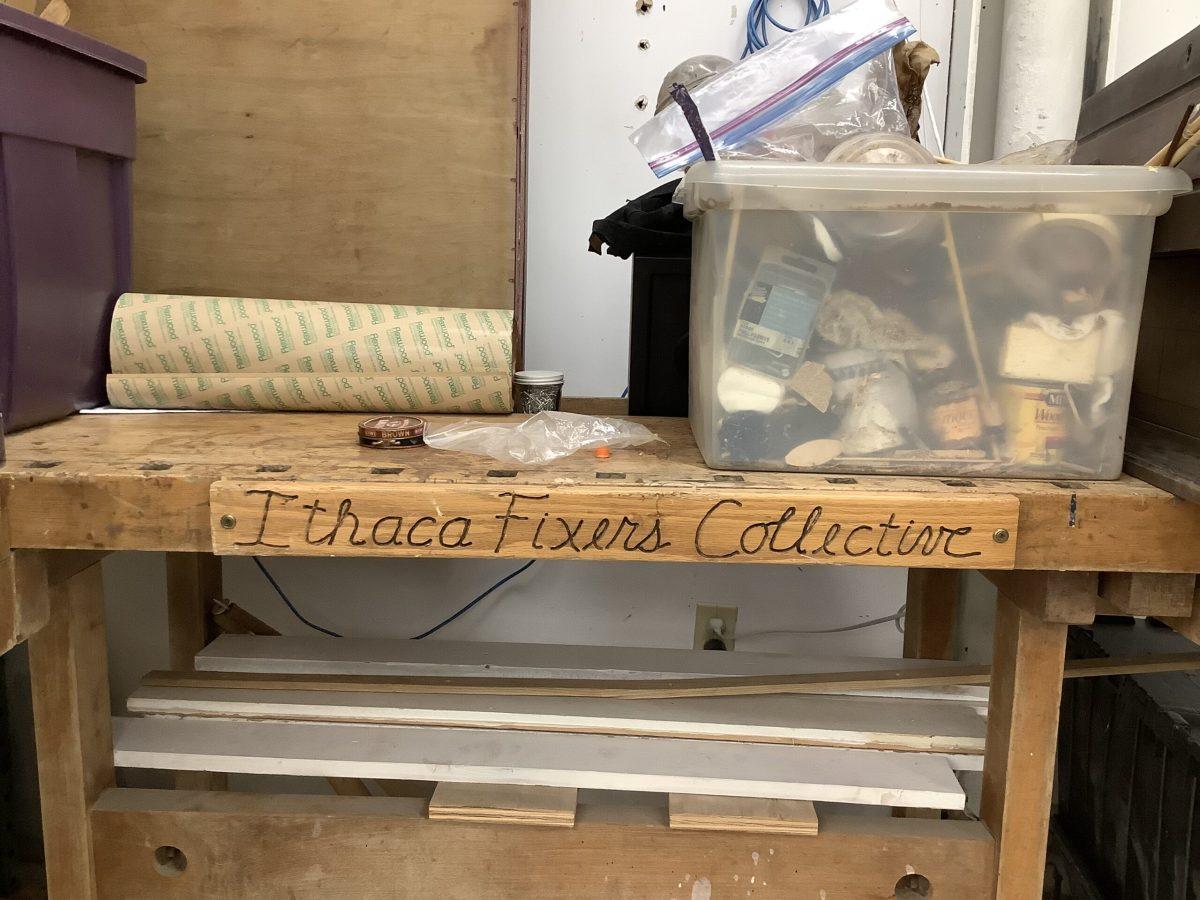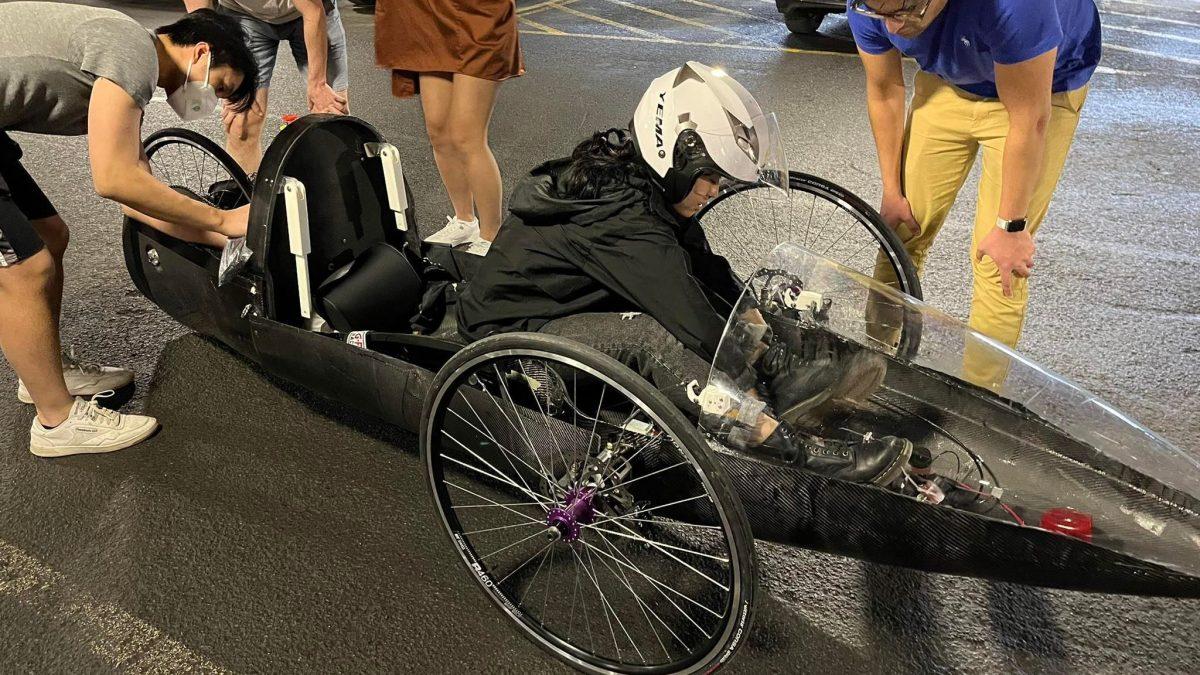The English Digital Media Class has been 95 percent paperless since its creation in 2013. The only documents required by the school’s administration to be printed, such as permission slips and health forms.
During the 2014-2015 school year the students began using Edmodo in conjunction with Google Docs and social media platforms like Twitter. Edmodo was launched in 2008 as a social platform designed for K-12 educators that uses a Facebook-like interface. Students can write and submit their work as well as chat with one another on Edmodo.
“We thought we should embrace the technology we have,” Steve Cass, co-teacher of the English Digital Media course, said. “We also started using Google Docs in the classroom to share scripts among the anchors. Because most of the things we do is available on the digital platform, it made our jobs a little easier.”
For Ithaca High School senior Amy Shmoys, the English Digital Media class is very different from other courses.
“I’ve never had an English class like this,” Amy Shmoys, Ithaca High School senior, said. “Most of mine are based around literature and writing and this is much more based around technology and also modern day versions of English, not just the writing part, but also the pictures behind a video.”
For some educators that support paperless environments, a large benefit is the creation of an interactive and efficient classroom. Allen Kupetz, an International Business professor at Rollins College in Florida, has taught paperless courses for five years.
“Paperless makes it easier to update my course regularly; I don’t need to prepare new handouts,” Kupetz said. “It increases the frequency of interaction with my students, since they too seem to prefer a paperless classroom.”
However, creating a paperless classroom did not come without growing pains.
Shortly after Cass and co-teacher Michael Reiff started the course, access to Tumblr was blocked for three weeks by the school’s firewall system, creating difficulties for the class. To prevent future issues, they switched to using Edmodo. Tumblr was used for blogging longer pieces and uploading both video segments and audio.
“You can also do that with Edmodo, but I just liked the platform that Tumblr had to upload their work,” Cass said.
Students embrace learning in a digital-only classroom because it is easier to keep track of assignments and other work, according to Cass. In class students work on Mac desktops and save it in Cloud or on their specific computers.
When classrooms use social media and free applications, such as Google’s Apps for Education, students are often left victim to company collection and distribution of their data.
Khaliah Barnes, director of the Student Privacy Project for the Electronic Privacy Information Center (EPIC) said, “A lot of times when we’re talking about “free services” the services are coming at the price of students’ information.”
EPIC released a Student Privacy Bill of Rights in March to contest the collection of student data for commercial use and analysis by companies.
That same month Google settled a lawsuit in California for scanning students’ Gmail accounts for advertising purposes, which was followed by a company statement that it had stopped all scanning of student users’ accounts. Currently, more than 30 million students and educators around the world use Google Apps for Education.
Edmodo, the service used by the class at IHS does not track students’ geographic locations, collect data or expose students to advertisements, according to the company’s website.
To prevent students without at-home internet access from falling behind, Cass has made class learning instructions portable.
“We can have them sign out an iPod touch and we can put that information on there,” Cass said. The iPod touches are also available for use by his other classes.
Using technology, Cass plans to flip the structure of each of his classes so that instructional learning happens at home and class is used as a working space.

